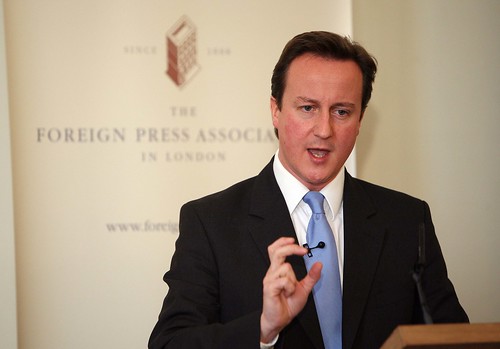
David Cameron has been urged to use the UK's presidency of the G8 this year to make an "ambitious and transformative" difference to the lives of millions of the world's poorest people in Africa.
Britain's previous stint at the head of the group of rich nations in 2005 delivered "major progress" in the fight against extreme poverty, and the UK is again in a "unique leadership position" to drive the cause of development forward, said a report from campaign group One.
In an audit of progress on the commitments made by the G8 at Gleneagles in 2005, One concluded that "increases in financing for development, through aid, debt relief and a huge rise in domestically generated resources have had a direct impact on the lives of some of the poorest people in the world".
The report found that, since Gleneagles, sub-Saharan Africa has made "remarkable headway", with: 21 million more children enrolled in primary school; New HIV infections down by 37%; Child mortality down by 18%; Annual GDP growth averaging 5%; Access to the internet increasing by 547% to 110 million.
Despite the failure to meet some Gleneagles commitments, aid to Africa from G7 nations - the G8 excluding Russia - has increased by 11 billion US dollars (£7.2 billion) annually and 35 poor countries have had debt totalling 35.5 billion dollars (£23.4 billion) written off, found the report.
The G8 countries - Britain, the US, France, Germany, Italy, Canada, Japan and Russia - have backed health initiatives which have helped to prevent 1.4 million deaths from yellow fever, polio and measles; provide 4.2 million people with anti-retroviral treatment for HIV; increase detection and treatment of tuberculosis cases by 8.7 million; and distribute 310 million anti-malaria bed nets.
By 2011, more than 8 million people were receiving life-saving treatment for HIV/Aids, 6.2 million of them in sub-Saharan Africa.
However, the report recorded "disappointments" on the stalled Doha global trade deal and insufficient G8 support to agriculture which means the proportion of people in sub-Saharan Africa suffering hunger has "barely decreased" since Gleneagles.
With the UK chairing this year's G8 summit at Lough Erne in Northern Ireland in June, and Mr Cameron co-chairing a United Nations high-level panel on the future of development, Britain has the opportunity to once more play a pivotal role in transforming the prospects of Africa, said One.
Mr Cameron has made trade, tax and transparency his key priorities for the UK's G8 presidency, arguing that the rich world can no longer rely simply on aid, but must "treat the causes of poverty and not just its symptoms". Developing country governments need reforms to sweep away trade barriers, help them collect tax revenues and secure better information about the ownership of land and assets, he has said.
The Press Association, photo by FPA in London



































